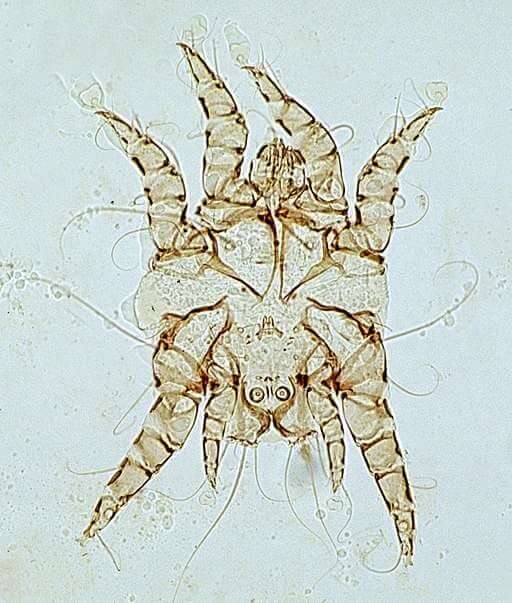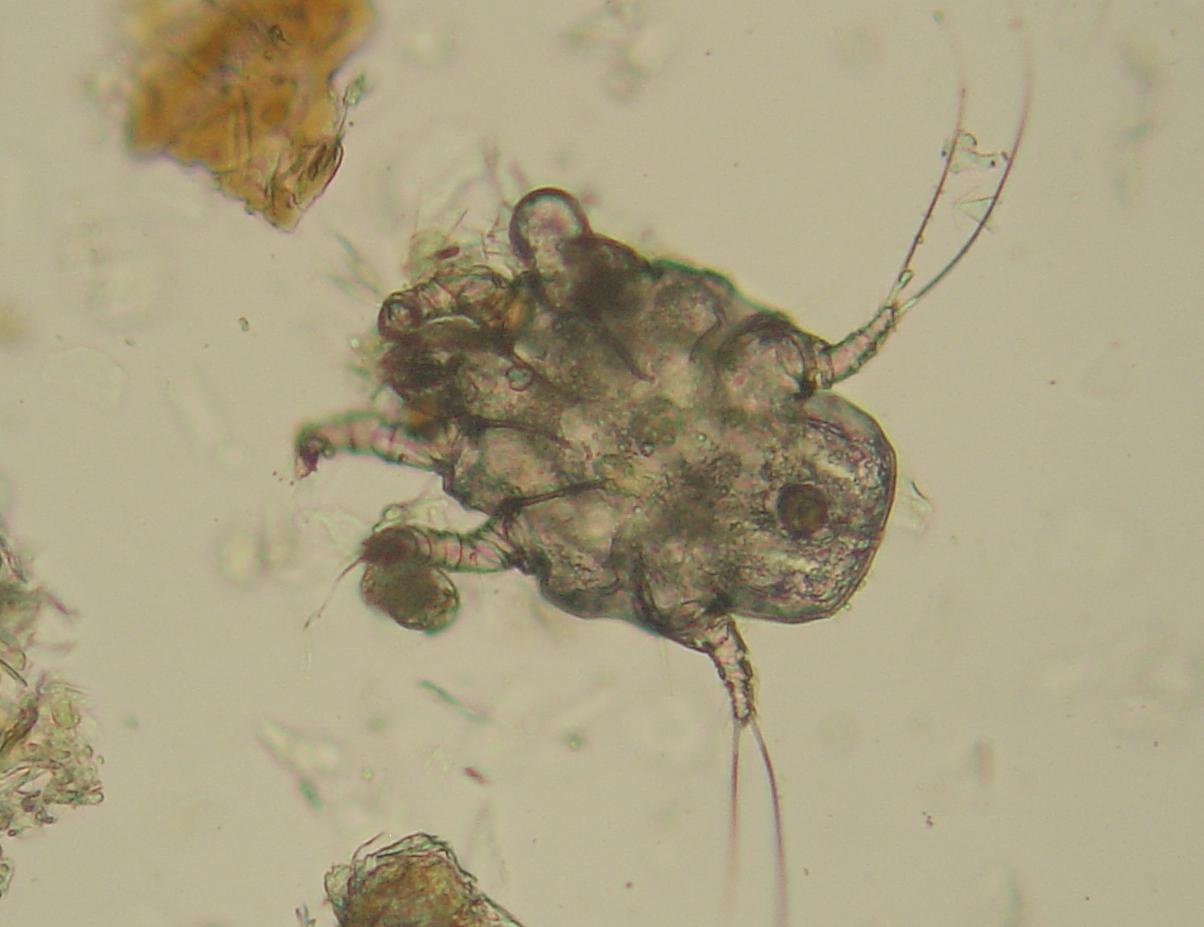- Home
- Dog Fleas and Ticks
- Ear mites in puppies
Ear Mites in Puppies and Dogs
Ear mites in puppies can cause so much discomfort for your Cocker Spaniel.
If his ears are infected, they will become very painful, and his hearing could be affected if left untreated. Learn about the symptoms, treatment for ear mites, and prevention to help keep your puppy safe.
Ear Mites in Puppies: What You Should Know
Ear mites are a parasitic infection commonly found in puppies and dogs (and cats, too!); your vet will know them as Otodectes cynotis.
They are white, spider-like parasites similar to a tick and are tiny (you'd be hard-pressed to see them with the naked eye). They breed very quickly and are highly infectious.
I will repeat this; ear mites in dogs and puppies can cause a lot of misery and discomfort for your pet.
 Ear mites in puppies cause much discomfort
Ear mites in puppies cause much discomfortIf your Cocker Spaniel comes into close contact with an infected Cocker Spaniel, you can be sure these canine parasites will be transmitted to your pet.
Once your pet has picked up these unwanted hitchhikers, they will migrate to his ears, where it's warm and dark.
They can live in other areas of your dog but prefer to live inside the dog's ear canal.
Ear mites feed on skin debris, ear wax, and natural oils.
The good news is that, unlike the tick, mites don't bite or burrow. They just clean up the junk inside your pet's ears.
The bad news is that they cause irritation, leading to your dog scratching his ears like crazy! It's this scratching that causes skin abrasions and eventual ear infections.
Symptoms of Ear Mites in Puppies and Dogs
You notice your new puppy scratching at his ears, and he won't let you take a look at them because they're sore. This is a classic symptom of ear mites in puppies.
Should you eventually manage to get close enough, your puppy's ears will probably look red and inflamed. There may also be a dark reddish-brown wax and crumb-like clumps in your Cocker pup's ears.
If you use a clean tissue to remove some of this gunge and look at it closely, you may see small, moving white mites amongst the wax. However, as I said earlier, they are almost microscopic, so don't be surprised if you don't see anything other than dark wax.
Other signs of ear mites in puppies are:
- an unpleasant smell inside your puppies ears,
- your puppy tips his head to one side,
- he shakes his head from side to side,
- your puppy rubs the side of his head along the floor or against furniture,
- there may be hair loss where your puppy has been scratching,
- there are raw areas inside your puppy's ears,
- your puppy may cry.
Ear mites are one of the most common causes of ear problems in dogs.
If left untreated, they can cause serious infections, ultimately leading to damaged hearing or, in worse cases, total loss of hearing.
Diagnosing Ear Mites in Puppies
Unfortunately, the above-listed symptoms of ear mites in puppies can also be signs of other ear problems in dogs, which can hamper making a correct diagnosis.
Your vet must make the diagnosis so that the correct treatment can be prescribed.
 Ear mites make me shudder!
Ear mites make me shudder!Your pet's ears may be so painful that the vet feels it's necessary to sedate your puppy before he can examine and clean his ears.
Your vet will take a wax sample from your dog's ear and examine it under a microscope before making his diagnosis.
You could easily get it wrong if you try to diagnose your puppy's condition. This could result in treating your pet for another ear problem, leaving the mites to continue their mission!
In this case, things will only get worse for your Cocker puppy, which is why you shouldn't try to diagnose the problem yourself.
Ear problems can last for months if not diagnosed correctly (as Max and I well know!).
So be vigilant, check your dog's ears often and get him to the vet as soon as you see any signs of ear mites or any other ear problem, for that matter!
Treatment for Ear Mites in Dogs
Once your vet has confirmed that your dog has ear mites, he will clean your pet's ears to remove as many of the mites as possible.
He will then recommend a treatment (usually ear drops) which should be followed to the letter.
Ear mites have a life cycle of around 3 weeks. If you don't follow your vet's advice, you may be successful in killing the mites but not the eggs, which will develop into adult mites.
Your vet will prescribe additional medication if there are any secondary infections with bacteria or fungi.
How long you continue to use the treatment will depend on how strong the product(s) are and what your vet prescribes.
Your vet may also recommend ongoing cleaning of your dog's ears as part of this treatment.
If you have other pets, including cats, you must treat them all, even if the others aren't showing signs of ear mites.
Prevention of Ear Mites in Puppies
There are many things you can do to help prevent ear mites in dogs and puppies:
- examine your pet's ears often,
- clean his ears at least weekly,
- keep your dog's bedding clean,
- vacuum your carpets weekly (more if you like!).
Some common flea treatments are also effective against ear mites. Check the labelling to see if this applies to the brand you use.
Ear Mites in Puppies: Summary
Ear mites are annoying canine parasites.
If left untreated, they can cause pain, distress and eventually hearing loss for your Cocker Spaniel.
I cannot emphasize enough how important it is that you don't try to diagnose your puppy's ear problem.
If you see any of the above symptoms in your Cocker, take your puppy to see his vet for a professional diagnosis and treatment.
Follow your vet's advice and the above tips for preventing ear mites in puppies, and you won't go far wrong!
Photo Credits: Ear Mites in Puppies
1. Alan R Walker - https://commons.wikimedia.org/wiki/File:Otodectes-mite.jpg
2. Ear mite. (2022, March 24). In Wikipedia. https://en.wikipedia.org/wiki/Ear_mite


